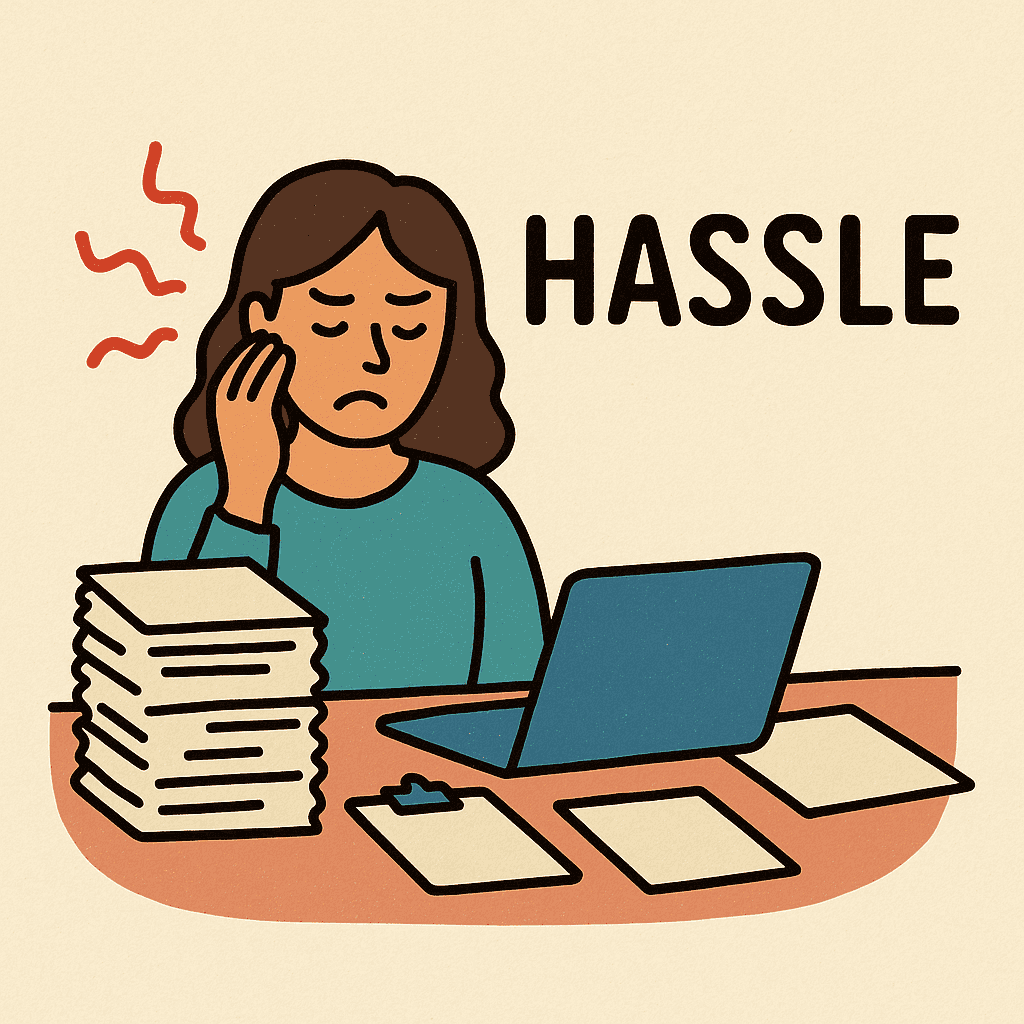Meaning
Hassle refers to something that causes difficulty, inconvenience, or annoyance. It can be used both as a noun (a situation that is troublesome) and as a verb (to annoy or bother someone).
Grammar and Usage
- As a noun: "It’s a hassle to deal with all this paperwork."
- As a verb: "Stop hassling me while I’m working."
Verb form: usually transitive (hassle someone). Noun form: uncountable or singular countable.
Common Phrases
- "a real hassle" = something very annoying
- "without the hassle" = done easily, with no trouble
- "go through the hassle" = experience inconvenience
- "don’t hassle me" = stop bothering me
Collocations
- adjective + hassle: big hassle, unnecessary hassle, minor hassle
- verb + hassle: avoid hassle, cause hassle, go through hassle
- hassle + preposition: hassle about/over (something)
Examples
- Traveling during the holiday season is always a hassle.
- I don’t want to go through the hassle of returning this item.
- It was a hassle to set up the new computer, but now it works fine.
- Don’t hassle your little brother—let him play in peace.
- Parking in the city center can be such a hassle.
- She didn’t want the hassle of cooking, so she ordered takeout.
- He keeps hassling me about finishing the report.
- Moving to a new house is exciting, but it comes with a lot of hassle.
Synonyms or Related
- Trouble
- Inconvenience
- Annoyance
- Nuisance
- Bother
Antonym
- Ease
- Convenience
- Smoothness
- Simplicity
